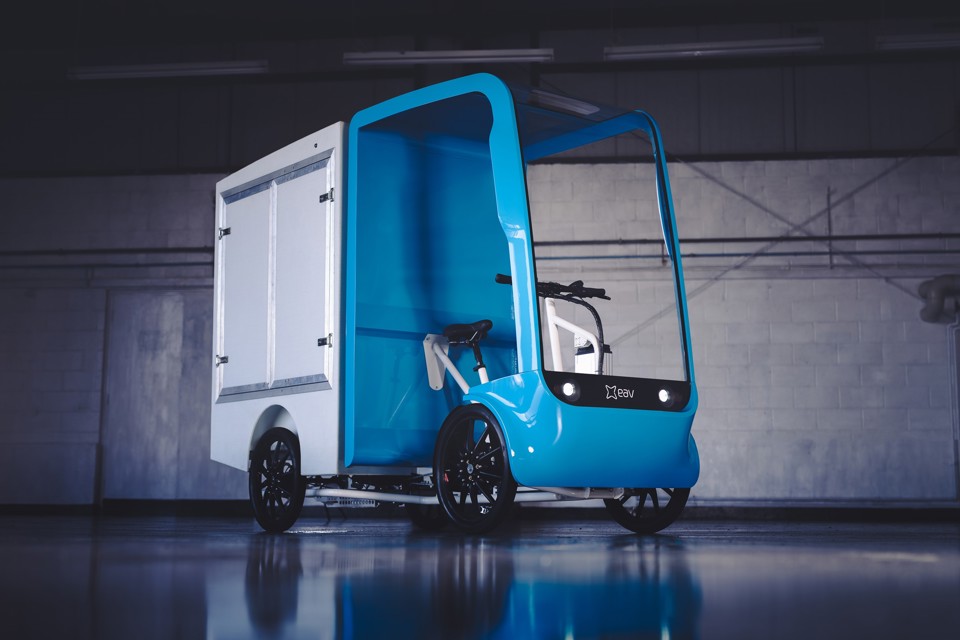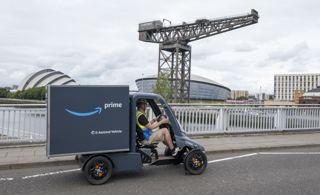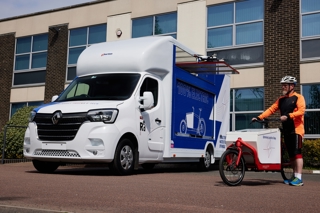Electric Assisted Vehicles (EAV) has launched its second e-cargo bike, the 2Cubed, which has a larger payload and incorporates a separate chassis-cab unit.
The vehicle is designed for city-based logistics including food and drink delivery, facilities maintenance, utilities businesses and tradesmen looking for a more efficient, cheaper and healthier form of commercial transport.
Fitted to the rear of the new EAV chassis unit is the new 2Cubed fixed box which offers a full two cubic metres of load volume with a fully adaptable internal shelfing system.
The development of the 2Cubed is in direct response to the significant increase in consumer deliveries over the past six months.
“EAV is an advanced micro-mobility design, engineering and vehicle manufacturing company solving a major and highly complex transport, business efficiency and social problem within urban environments using simplicity and light weight,” said Adam Barmby, CEO and founder of EAV.
“The advent of electric bike technology has meant we can now use a bio-mechanical electric hybrid vehicle, like the EAV 2Cubed, to replace most vans and even cars in urban environments without any loss in business operational efficiency or discomfort to the operator or driver.”
The EAV 2Cubed is EAV’s next step forward in its ‘eavolution’ business development plan combining the chassis-cab EAV unit with a two-cubic-metre fixed rear box capable of carrying 20% of the capacity of a diesel engine Ford Transit.
Transport for London research has confirmed that 40% of vans, such as the ubiquitous Transit, only use on average 25% of their capacity, making the new EAV 2Cubed a real alternative and solution to a significant proportion of London commercial van traffic.
Maximum payload of the 2Cubed is currently 150Kg (plus rider) but a new wheel and tyre package will shortly be announced significantly increasing weight carrying capacity.
“The new EAV chassis-cab and 2Cubed fixed box is a big step forward for alternative lightweight commercial goods vehicles in towns and cities.” added Barmby. “We can honestly see a time when the majority of urban commercial and even personal traffic is based on the EAV chassis-cab concept and we already have a solution to almost every road transport use conceivable.
“In our new, post-Covid world, we don’t need to make the environment worse, we need it to be better and healthier and the EAV eavolution plan will go a long way to achieve that. We just need to change wider transport thinking and culture, a process which, fortunately, has already started.”
The EAV 2Cubed is already in production at EAV’s UK manufacturing facility in Upper Heyford, near Oxford, with several blue-chip customers currently taking deliveries.



















Login to comment
Comments
No comments have been made yet.